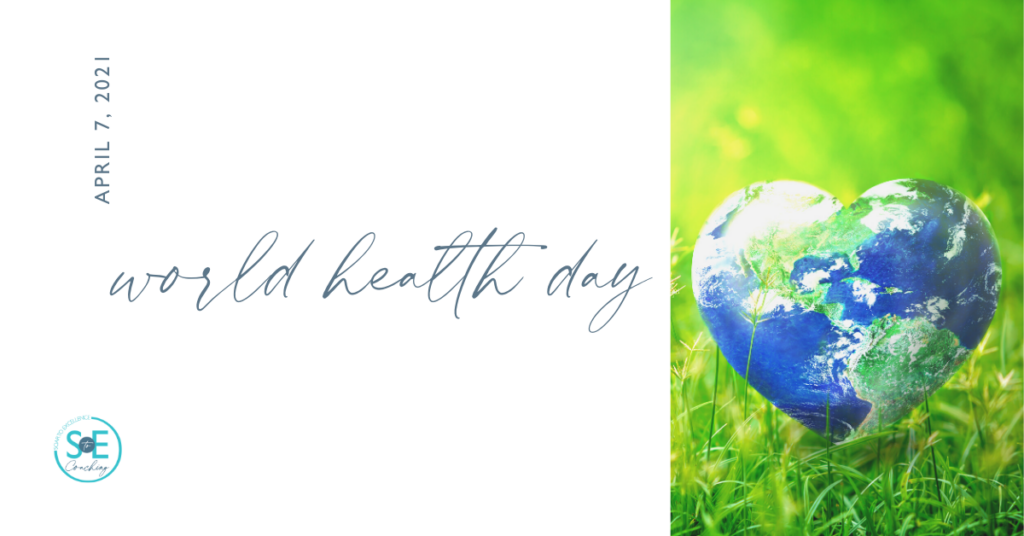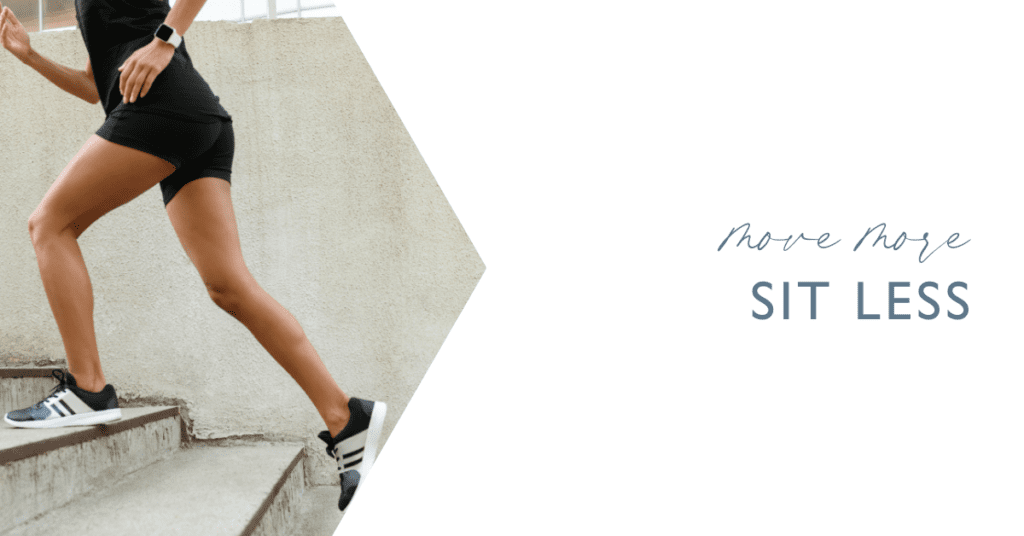
World Health Day
Without our health, what do we have? We’ve been through a lot and it’s time for a check up. World Health Day is the perfect chance to do just that. Our primary obligation is to take care of ourselves. No matter what life throws at us, we must keep wellness front and center.
There’s never been a better time to be proactive in our approach to a healthier lifestyle. Small adjustments can drastically improve our circumstances.
This World Health Day, we invite you to take inventory of personal and community wellness. In this article, we will review the origins of the holiday, share a health checklist and highlight health-related challenges in underserved communities.
THE ORIGINS OF WORLD HEALTH DAY
The history of World Health Day dates back to 1949, one year after the World Health Organization (WHO) was started. WHO created the holiday to celebrate good health and spotlight modern themes in medicine.
The 2021 theme for World Health Day is to create a fairer and healthier world FOR ALL. It’s no coincidence that the holiday lines up with Celebrate Diversity Month, either! It offers a prime opportunity to reflect on the social determinants that prohibit underserved communities from quality healthcare.
WHO consists of 194 countries across the globe varying in economic statuses and cultural backgrounds. They recognize that race, region and financial circumstances play a significant role in the health of an individual. Their mission is to address disadvantages of underprivileged groups and take steps towards correcting them.
Conversations surrounding diversity and inclusion in the medical field are important now more than ever. As we celebrate Diversity Month and World Health Day, let us all remember that healthcare is a basic human right. In order to achieve this, we need to first explore the health disparities that disproportionately affect minorities.
Access to Healthcare.
Rural and poverty-stricken areas are prime targets for the vicious reality of limited access to healthcare. Many people living in poverty don’t have health insurance, and therefore cannot afford to take care of their medical needs.
Other obstacles for these communities include long distances from reliable medical facilities and lack of overall infrastructure. Third-world countries are especially vulnerable to complications and fatalities that occur when there is no working healthcare system in a high-risk environment.

Lack of Diversity in the Healthcare System.
Diversity in healthcare is a topic that deserves a major spotlight. So much so, that it’s our topic for next week’s blog (stay tuned!). Representation is important in every field, but it’s vital in medicine. Without equal representation in the medical field, minority patients often pay with their lives.
Low-income and underdeveloped areas usually only have convenience stores and gas stations as a source for groceries. With fast food restaurants on every street corner, these unhealthy options are miles closer than the nearest grocery store.
Junk foods are notorious for cultivating obesity, diabetes, and other comorbidities. This further traps communities with minimal access to healthcare in a perpetual cycle of unhealthy living with no affordable means of treatment or escape.
Areas such as these with no access to healthy or fresh foods are called “food deserts”. An estimated 23.5 million Americans are living in a food desert. Impoverished countries all over the world are affected by restricted access to quality grocery stores. Consequently, the overall health of those communities suffers severely.
What You Can Do:
At this point, you may be asking yourself what you can do to help these vulnerable populations. It’s a systemic problem that won’t be solved overnight, but there’s still plenty you can do. For instance, you can:
- STAY INFORMED → Being informed about where to spend and invest money is another way to support minority groups, and in turn, promote world health.
- SHOP LOCAL → Support small, local businesses to contribute to the neighborhood. Even better if you prioritize working with brands and companies who continuously give back to these communities.
- RAISE AWARENESS → Big change requires big funding. Sharing donation links is great, but those links need passionate donors in order to make a difference.
- FUNDRAISE & DONATE → Just make sure the money you donate is actually going toward the issues you care about. Here is a great source of reputable organizations to contribute to.
As we continue to advocate for underserved communities, here are some simple preventative measures we can all be taking to better our own personal health.
PHYSICAL HEALTH
You’re not the only one whose diet and workout routine fell apart during quarantine. Many of us have taken on completely new lifestyles as a means of adapting to current events. Our lives have become more sedentary, which is why making time for physical health is important now more than ever.
Get Moving.
We’re not asking you to run a marathon, but it is essential to be active. Especially when we’re sitting all day, we should take time to stretch. Stretching thoroughly is great for our muscles and promotes blood circulation.
The American Heart Association (AHA) recommends at least 150 minutes (2.5 hours) per week of medium-intensity exercise. This translates to approximately 75 minutes of high-intensity workouts a week. 2 days of muscle strengthening is also recommended.
Read more on the AHA’s recommendations for physical activity here. Bottom line: Move more, sit less!

Check Your Nutrition
In 2021, we know the value of nutrient-dense foods. If eating fruits and veggies feels dreadful to you, mix it up! There is a never ending amount of recipes on Pinterest that will satisfy your taste buds without clogging your arteries. Just check out these 9 Smoothies With 2 Servings of Veggies (That You Won’t Even Notice)!
Remember, the goal is to eat better. Choose foods that are rich in vitamins and antioxidants. Don’t worry about the calories—start with adding or substituting with whole ingredients.
Reaching your daily water intake is equally important. It helps your body run more efficiently, flush out toxins, and burn fat throughout the day. But here’s a pro-tip—you don’t have to drink it all!
Instead, stock up on water-rich foods like watermelon, strawberries, and oranges. These fruits contain water content levels of 92%, 91%, and 88% respectively. Get the full list of 19 Water-Rich Foods That Help You Stay Hydrated by following the link.
If that doesn’t work for you, there are plenty of other work-arounds. Flavoring your water with a fruit-infuser water bottle is one easy option. Powder and liquid water enhancers are another choice, although whole fruits will always be the healthier of the two. Learn more simple ways to stay hydrated here.
It’s easy to forget, so find a way to remember! Whether that’s setting an alarm on your phone or keeping a gallon jug at your desk, make it a point to drink adequate water each day.
Get Plenty of Sleep.
Whoever said, “I can sleep when I’m dead” was accelerating the process. It may feel like there are too many things to do in a day, but that’s not an excuse to skimp on the Zs. Cutting out sleep is one of the most harmful things we can do to ourselves. In fact, being sleep deprived can impair you more than being intoxicated.
Just look at the statistics! A study by the AAA Foundation for Traffic Safety revealed approximately 328,000 drowsy driving crashes occur annually. This research also found that an estimated 109,000 of these crashes resulted in injury while 6,400 were fatal. Those are some crazy numbers!
Sleep is important and highly underrated. Take care of your obligations during the day and shoot for 6-8 hours of sleep each night. If that means pushing things back, so be it. With proper planning, there’s no reason to miss out on rest.
MENTAL HEALTH
Are you okay up there, brain?
The current mental health statistics are bleak. A study published by The Washington Post found that at least 40 percent of American adults are struggling with at least one mental health problem or drug-related illness. For young adults, the statistics are even worse, with 75 percent affected.
It’s no secret that the events of last year have impacted our psyches. Now, it’s up to us to nurse our noggins back to full capacity. Here are some healthy solutions to start doing so:

Meditate.
The power of clearing a mind is unrivaled. Especially now, as we all acclimate ourselves to the digital workflow, it can be difficult to shut our minds off.
There’s always something to be done. A presentation to be finished, an email to be sent, a pitch to prepare for. The chatter in our heads is constant. Respectfully making time (even if it’s just five minutes!) to be present, express gratitude and get connected with our higher selves is non-negotiable. Bonus points if you get fresh air.
Follow a Schedule.
Undoubtedly, our structures have gone a little cattywampus. With so many goals and responsibilities, productivity requires planning and discipline. In order to balance all of your work assignments and personal obligations, you’ll need to make a schedule and stick to it.
Don’t know where to start? Click here to check out Entrepreneur’s tips for optimizing your time. We especially recommend the tips stressing when and how to prioritize important tasks.
Be Mindful of the Content You’re Consuming.
The eyes are the gateway to the soul. We’re staring at screens more often than ever before. When we’re not on our computers, we’re sucked into our phones or watching television.
According to Insider Intelligence, US adults spent an average of 7 hours and 50 minutes per day on digital media platforms in 2020. That includes time connected to TV, smartphones, and streaming services.
There are so many distractions and false information sources on the internet. It’s important to be selective with the content we allow to influence our thoughts. As much as possible, the stories on your feed should come from reliable sources on topics you want to know about.
“Doomscrolling” won’t do you any favors. Accounts that spew negativity and cause your blood to boil shouldn’t be on your homepage. News flash: you don’t have to follow anyone.
Protect your Peace by filling your eyes and ears with mindful content that motivates and inspires you. Anything else is harmful to your mental wellbeing and peace of mind.
SOCIAL HEALTH
Chances are the only times you’ve seen the word ‘social’ in the last year are when ‘distancing’ was attached to it. Social health can be difficult to come by these days.
Healthy relationships are an essential part of wellness that give our lives meaning. As we transition to a digital reality, it is imperative that we be intentional about our social lives.
Plan a Distanced Date.
Schedule a video call with one of your closest friends and plan to do something, dare we say, normal. This can be eating lunch at the same time or helping one another choose home decor. Setting aside time for socializing helps you decompress and allows you to focus on the time spent with your loved ones.
Don’t Be too Serious.
Keep in mind that you’re not the only one in this boat. Your friends and colleagues are also learning what a model digital relationship is supposed to look like. Take everything with a grain of salt. You and everyone else are feeling a little socially awkward right now.
Friendly reminder: when you’re in public, smile, even though we’re masked up and 6 feet apart. We could all use a little social warmth these days. It’ll also do wonders for improving your mood! Smiling comes with a long list of health benefits, so don’t be afraid to express your joy even if no one can see it.

World Health Day serves as a reminder to examine our wellbeing and check in with our disadvantaged communities. It’s essential that we address these social issues more frequently! After all, everyone is responsible for achieving this year’s theme—a fairer and healthier world for all.
Wellness is the foundation for a more balanced life. When our systems are running smoothly, it allows us to be better coworkers, partners, parents, and, well, people. Celebrate your health by following some of the actionable steps outlined above. Get some fresh air, go on a hike, and check in on your nutrition. And remember, we are all connected. Stay educated on the circumstances that affect world health and play your part for positive change.
